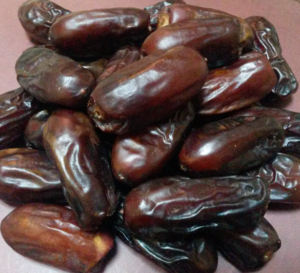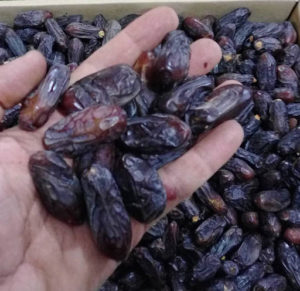Popular Mazafati & Rabbi Dates in Iran

This rich source of manganese and wheat is used to make a sweet, thick, syrupy dessert. Iranian Rabbi dates are an appetizing appetizer that promote good digestive system, treat ulcerative colitis, reduce stress, help to treat digestive disorders like Anemia and gastric ulcers, increase gastrointestinal function and prevent colon cancer. These delicious sweets can be a part of any diet, but are especially beneficial for those suffering from ulcerative colitis. The main ingredients of Rabbi dates are fructose and manganese. The exact amounts of fructose and manganese vary depending on the region where it is grown, but it is usually enough to provide the beneficial effects.
Since many diseases affect the intestines and since the intestines are directly connected with the absorption of nutrients in our food, it is important to choose a nutritious food that can be digested easily by the body. The most nutritious foods are the ones that have a soft texture, are rich in Vitamin B12 and other minerals, and contain fibres. Therefore, we can conclude that these delicious Rabbits are the most nutritious of all nuts. The development of the seeds into a pulpy form is what makes these Rabbits rich sources of fibre. Fruits of the same family, such as melons, apples and plums, have a hard texture and are therefore better choices than Rabbi dates when it comes to getting more fibre.

Rabbi dates are slightly bitter and firm. Although they taste sweet, the bitter taste is a result of the complete digestion process which removes almost all of the sugar and the fibre. When we refer to “desserts” or “fruits of the gods”, this refers to the soft, pale, low-fat products that can only be found on the surface of the ground. The surface of a ripe kosher grapefruit may be covered with a sugar coating and can only be eaten at room temperature. Since Rabbi dates are rich in carbohydrates, they are an ideal source of carbohydrates for baking in the oven, although they retain their shape after baking, so can only be eaten raw.
The seed of the mango is used to make a paste that is rubbed on the surface of the flesh to preserve its flavour for up to one week. This amazing Rabbi dates fruit paste has a unique taste, but the sweetness is masked by the nutty, milky taste of the mango. It is best enjoyed when cold, although when it is put in a refrigerator it retains its shape and flavour for several days.
Kedem hareket, a kind of sweet marshmallow, is eaten as an after dinner snack. Like Sayer dates, the texture is slightly sticky and tends to have a somewhat odd smell. When eating kedem hareket, the leaves should first be rinsed and then placed in a food processor to break them down into a smooth paste. Once blended, the paste can then be added to water and allowed to steep for around 5 minutes. The longer the paste steeps, the deeper the chocolate flavour. Once fully infused, it can be stored in an airtight container.
Due to modern technologies, packaging of kosher date fruit is much easier than it used to be. Plastic packaging is now widely available. This type of packaging allows for easy storing and shipping as well as increased shelf-life. It is also an ideal choice for Jewish dairies as unlike traditional packaging, the plastic package does not retain the shape of the fruit once it is opened. This means that the traditional package, once opened, cannot be re-closed.
Mazafati dates are produced on the island of Sistan province in Iran. Like all other Iranian fruits, the taste is generally described as bitter. The color range for Mazafati dates is broad, which makes it very popular with bakers who have a variety of needs for their bakery products. The most common use of Mazafati dates in the dessert sector includes filling the center of cookies, cakes or cupcakes with chocolate or icing and then decorating with truffles. The hardiest of the Mazafati dates do produce some soft and fleshy juice when pressed, which is often used in the preparation of mulled wine.